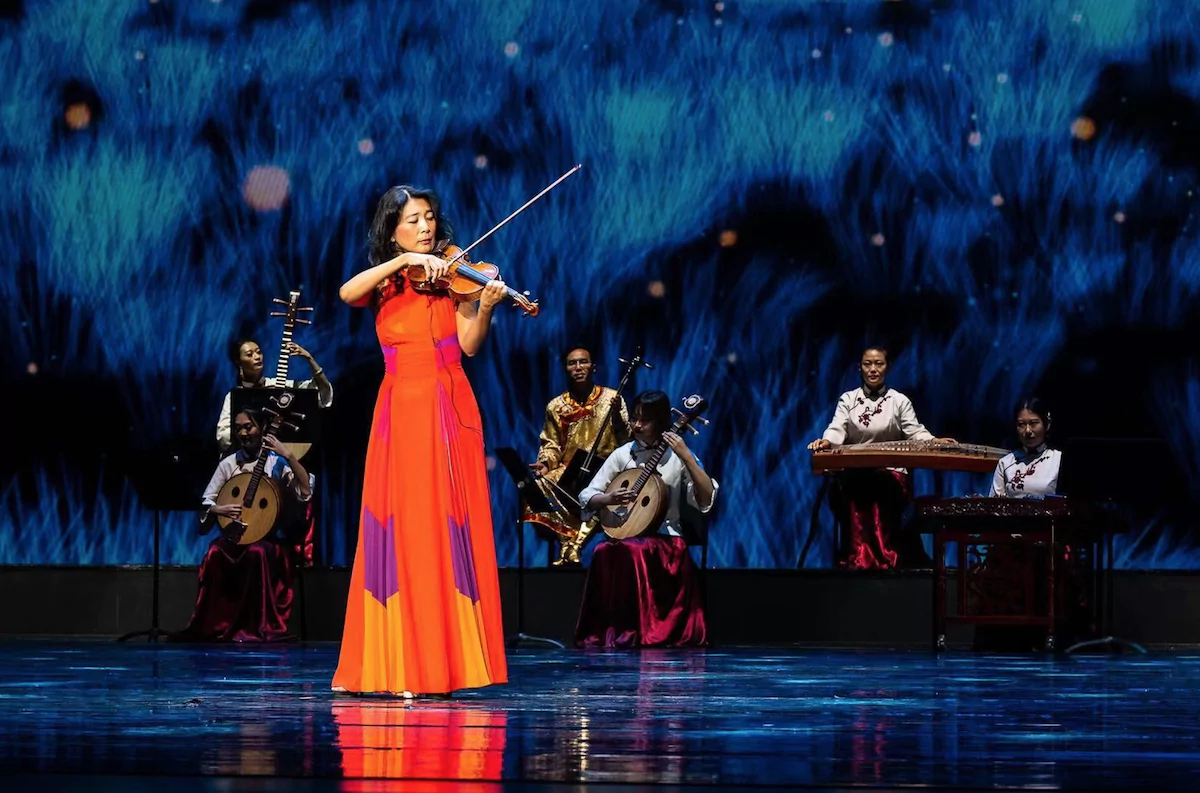Violinist Zhang Zhang shares with Monaco Life her remarkable journey, from her challenging beginnings in Beijing during the Cultural Revolution, to her illustrious career with the Monte-Carlo Philharmonic Orchestra and her dedication to giving back to the community.
Monaco resident Zhang Zhang has been an accomplished first violinist with the Philharmonic Orchestra of Monte-Carlo since 2000 and a Soloist of the Royal Opera of Versailles since 2019. She is a social entrepreneur, public speaker, author, opinion leader, president of Skal International Monaco, and founder of Zhangomusiq in Monaco, an NGO dedicated to environmental issues.
The talented musician was born in Beijing during the Cultural Revolution, from 1966 to 1977, during Mao Zedong’s last decade in power. It was a dark period in China’s history, during which many millions were prosecuted, and many perished. Society was divided into five black categories: landlords, rich farmers, counterrevolutionaries, bad influencers, and right-wingers, and members were persecuted. Inversely, Mao categorised members of the Chinese Communist Party, poor farmers, and low-class workers into five red categories. This new red/black class distinction was used to create a status society, with Mao’s primary objective of consolidating his power with the support of the youth and students. It was shortly after Mao’s death in September 1976 that the principal responsible, the celebrated Band of Four, including Mao’s wife, Jiang Qing, were arrested, judged, and condemned.
Monaco Life’s Features Journalist Celina Lafuente de Lavotha spoke with Violinist Zhang Zhang about her tumultuous upbringing, her quantum leap from Beijing to Monaco in a quest for freedom, and her successful musical career.
Monaco Life: Could you tell us about your early life?
I was born in Beijing during the Great Proletarian Cultural Revolution when my family became destitute. The population had been divided into categories: Descendants of nobility, industrialists, intellectuals, artists, and wealthy landowners were considered, at best, decadent degenerates and, at worst, enemies of the nation, with very few rights and legitimate targets for the Red Guards and those belonging to the superior proletariat classes.
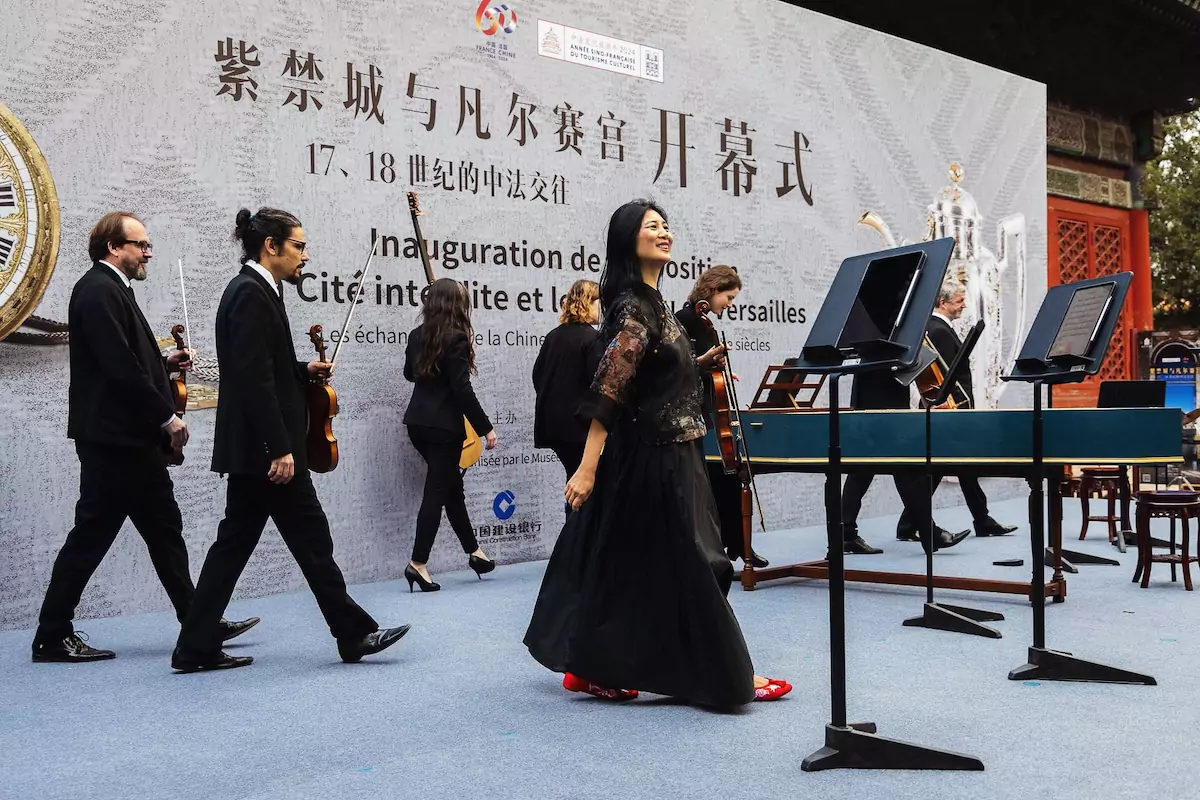
My mother, a well-known film actress and pianist, was sent to a labor camp to reeducate artists. She was allowed to give birth in Beijing but had to return to the camp before I was two months old. My father, the leading violinist in Madame Mao’s Model Orchestra, was constantly on tour in the nation’s service, including communist countries in Eastern Europe, so he could not take care of me.
Luckily, my maternal grandparents —both sociologists, educated at the American Christian University of Yen Ching and Columbia University in New York— were allowed to return to the capital after three years of hard labor in a camp to reeducate intellectuals in the south of China. At two months old, I was handed over to my grandparents in a basket in the family home kitchen, the only room left for us, while the rest of their house was occupied by proletariats who moved in during my own family’s banishment. We used the wooden bench of my mother’s piano as a table. Yet, I was not unhappy because I was loved.
Tell us about an incident that made an indelible mark on you as a child?
I witnessed my father’s arrest at the order of Madame Mao, imprisoned illegally for months and only released when her power ended. My parents left China to seek a better future, only allowed to take one child. My father considered me more valuable as I was already playing the violin well and could serve as an advertisement for his teaching. 1981, we left for Hong Kong, leaving my seven-year-old brother behind.
My early childhood in Beijing was poor in terms of material wealth. Still, it was on the rocky road to freedom that I experienced hunger, violence, humiliation, and the solitude of exile. Growing up as a migrant child, I could not feel truly at home anywhere, so I lived a nomadic life. When I arrived in the Principality, I finally felt a sense of belonging that contributed to realising my potential and fulfilling my dreams.
China will remain the garden where my roots are; Monaco is the land of my destiny.
Who motivated you to become a professional violinist? Who was your mentor and who were your teachers?
I did not receive musical training for my development, nor was it my choice. I wanted to be a poet or a singer in the combatant role in the Peking Opera. That decision was taken before my birth to fulfil my father’s ambition, whose career had been interrupted by the revolution. I grew up surrounded by classical music, influenced by my pianist mother and violinist father. I was compelled to play piano at age two and violin at age three. It was not meant as an artistic pursuit but coached to become an instrument virtuoso like a horse trained for racing or a wild creature domesticated for the circus from a young age. Even at six, I resisted the process, resulting in harsh and disdainful situations, so I consider it a negative experience.
Until the age of 18, I was not a prodigy but a good professional violinist with a promising career as a concert soloist, under the belief that the reason for playing the violin was to reach for success and fame. It was then that I met my mentor, Sergiu Luca, a Romanian-born American violinist. I learned about music with a capital M and the noble art of being a musician.
Career highs
Could you tell us the highlights of your career with the OPMC?
Over the past 24 years, there have been many unforgettable moments playing for the Philharmonic Orchestra in Monaco.
OPMC is one of the oldest in Europe, a legacy orchestra with a long and beautiful history, and the voice of classical music in Monaco for over 168 years. We perform a broad repertoire of symphonic, operatic, ballet, and chamber music alongside legendary conductors, singers, pianists, and violinists. Still, we are also leaders of 20th-century progress in equality and cultural diversity. There is no gender pay gap at OPMC; salaries are based on the function of the post and not on the artist’s identity. An increasing number of female musicians have successfully won the auditions, including concertmasters and principal spots.
Over 20 nationalities are represented in OPMC, led by Maître Kazuki Yamada, one of the few Asian conductors at the head of a significant European symphony orchestra. We have shared the Monte Carlo Opera stage with Les Musicians du Prince, an ensemble created and led by one of my favourite artists of all time: Cecilia Bartoli, the first female director of the Monte Carlo Opera in its 145-year history.
What was your most memorable concert experience?
Over a 40-year career, there have been many indelible moments. Playing in the African Savannah of Kenya for the Maasai people; fundraising concerts in Monaco for Mission Enfance to build schools for girls in Afghanistan; performing the first Earth-to-Solar Impulse concert for Bertrand Piccard’s epic flight around the world; and the wedding of Prince Albert II and Princess Charlene in the Palace.
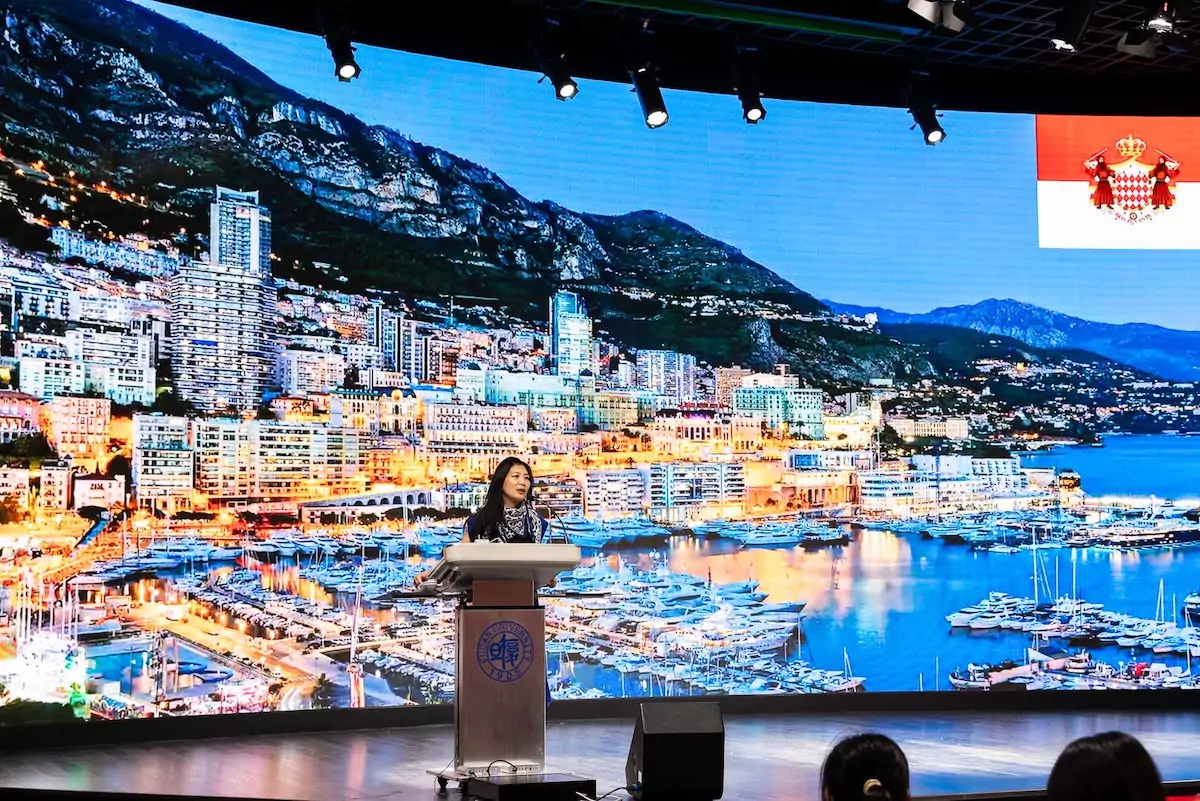
Connecting China and Monaco
Could you tell us about your recent tour with the Royal Opera Orchestra of Versailles celebrating the 60th anniversary of China-France’s re-establishment of diplomatic relations?
It was a notable tour to celebrate this diplomatic milestone. Our first performance was held in the Forbidden City for the inauguration of the joint exhibition between the Forbidden City National Museum and the Chateau de Versailles in the presence of foreign ministers from both countries, the first concert of baroque music given by a European orchestra in the Forbidden City in the modern age. The Point de Vue magazine followed us to Beijing and featured my exclusive interview.
We toured nine major cities: Beijing, Shanghai, Shenzhen, Guangzhou, Nanjing, Suzhou, Hangzhou, Changsha, and Chengdu. I had not returned to China since 2019 and found Chinese society serene, vibrant, and peaceful. It was a pleasure to be back in the land of my childhood and discover new regions. At each stop, members of my extended family and their friends would bring me bouquets of flowers on the stage, love gestures that touched my soul and gave me a great sense of homecoming.
Giving back to the community
When and why did you create ZhangoMusiq and the Monaco String Quartet Ensemble? What were your objectives then and now?
Zhangomusiq was created in and inspired by Monaco. Shortly after I arrived in the Principality, I discovered that almost everyone I met was involved in philanthropy work, be it donating their time, energy, funds, or ideas. My first fundraising concert was in January 2005 at the Anglican Church. I raised money to help a fishing village in Sri Lanka affected by the December 26th tsunami in the Indian Ocean. On the day of the concert, the international community of Monaco turned up in full force, and we raised far more funds than expected. As an ordinary musician, I realised I could save lives and help people in need.
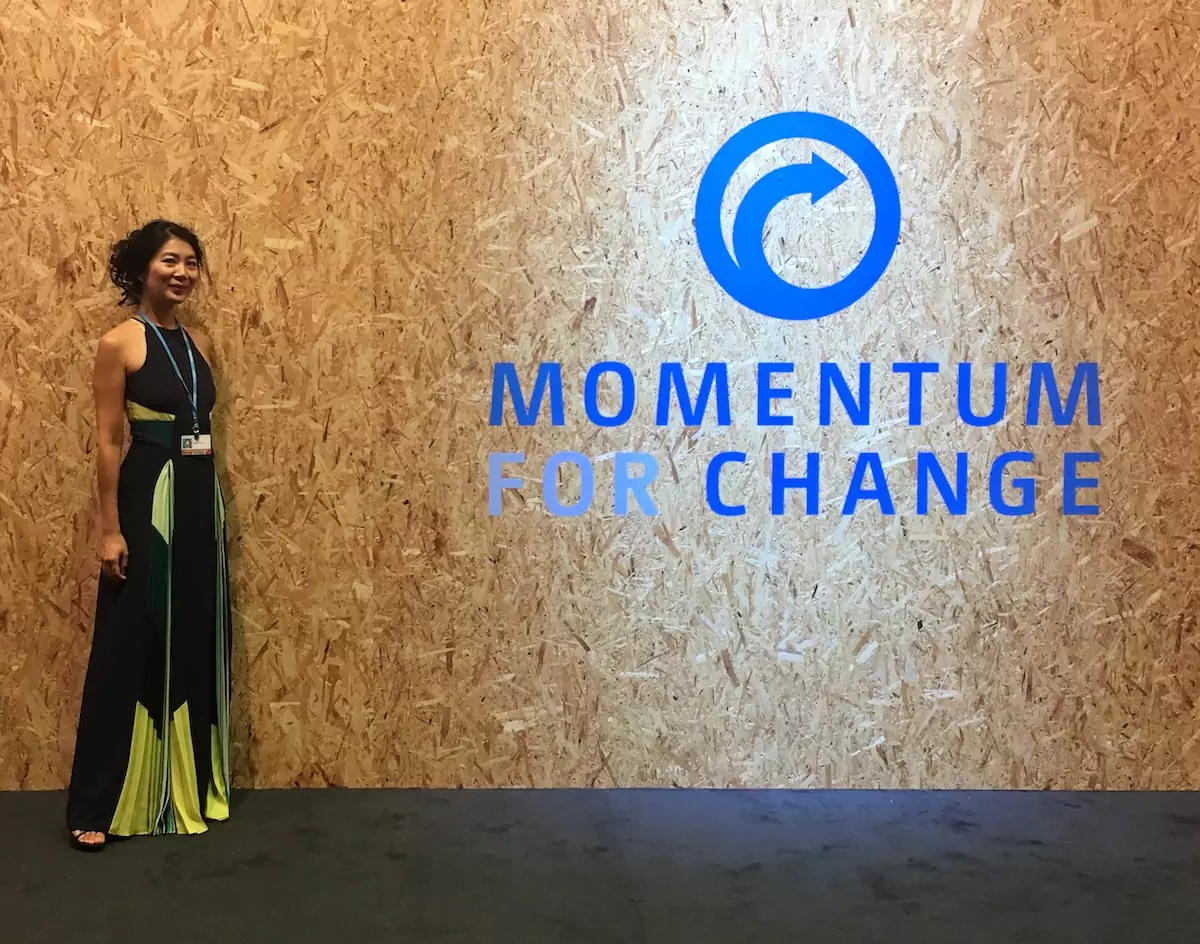
Zhangomusiq was an experiment of sorts to explore a new business model by expanding the age-old system of two-way exchange between the artists and the audience into a four-way alliance: artists provide their art to the public, and we invite a corporate or private partner to give back to the community by supporting the costs of the concert, while an NGO dedicated to humanitarian, ecological or educational project receives all the revenues. In the past 15 years, we have given more than 75 benefit concerts to over 40 countries. I am proud of the work done with Mission Enfance, raising funds to facilitate education for girls and helping children in need in Afghanistan and Syria.
I am forever grateful to generous donors and friends who believed in me in the early days when Zhangomusiq was merely a dream. The original Zhangomusiq godparents were Prince Albert II, Jean Claude Eude, Kay Eude, Jean Castellini, Paul Marie Jacques, Gerald Siu Jr., and the Monaco Government, helping reach Zhangomusiq’s endeavors in musical philanthropy and diplomacy.
I have accompanied several of the Principality’s Ambassadors on diplomatic missions to Tokyo, Brussels, Rome, and Moscow. In 2019, I was honoured to perform in the Prince’s Palace for Princess Charlene and Mme. Xi, Prince Jacques, and Princess Gabriella during President Xi Jinping’s historic visit. An image of this moment made the cover of Le Point Vue magazine.
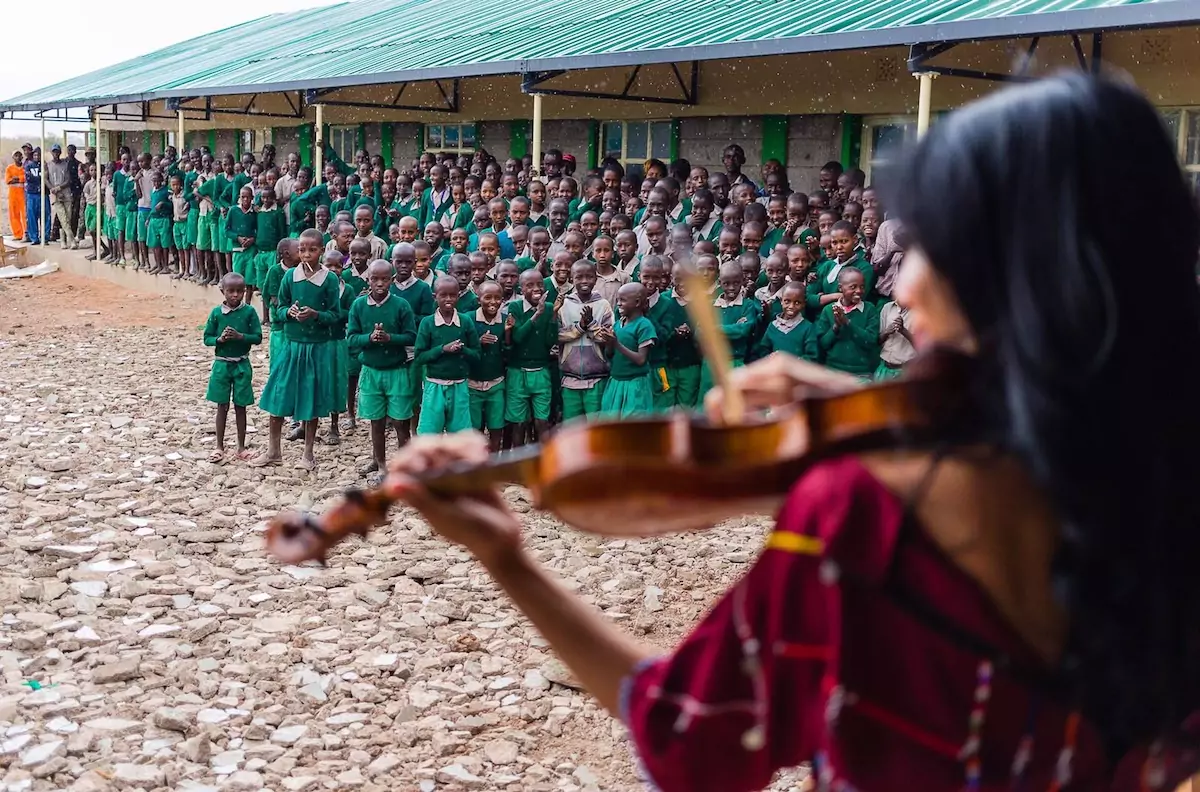
I am grateful to my musical partners, jazz guitarist Leopoldo Giannola and the versatile pianist Elzbieta Ziomek Fringant, with whom we regularly perform at Monaco’s retirement homes and the Rainier III Gerontology Center. The most beautiful souvenirs are not always from the big stage with bright lights but from the smiles of those we were able to offer a moment of solace and joy. Together with Leopoldo Giannola, we have a project of recording our favourite works with the album sales to benefit Humanitarian causes.
The year 2025 will mark the 30th anniversary of diplomatic relations between Monaco and China. I look forward to contributing to celebrating the friendly relationship between the two countries most dear to me.
Writing a biopic
Could you tell us about your recent biopic book La Voie de L’Archet or The Path of the Bow, published in 2023?
I felt I was not ready when Edition Fayard, the 150-year-old publishing house with its list of political figures, journalists, thinkers, and novelists, proposed to me to write my story, but I accepted the challenge. Writing my chronicle was an adventure and a renaissance, a shattering but also healing process of breaking free, the way a seed bursts out from the earth to grow into a tree. Writing in French, a language I have not mastered, took me six months, plus 16 months of detailed editing by my talented editor, whom I call our embroidery work.
The story begins with a legend of the Chinese dragon and ends in the Gobi Desert of the ancient Silk Roads. It is a recollection of my early childhood in China during the Cultural Revolution, the history of my family, and the sharing of my understanding and reverence of Chinese culture and history. It is the story of a child growing up in poverty, violence, and exile who stubbornly clung to life and continued to hope.
This biopic is a testimony and an homage, as it has reconciled me with my childhood and youth. It is also an opportunity to acknowledge those who crossed my path and contributed to my becoming who I am today, embracing both positive and negative influences.
I am happy to announce two additional books are already in the works!
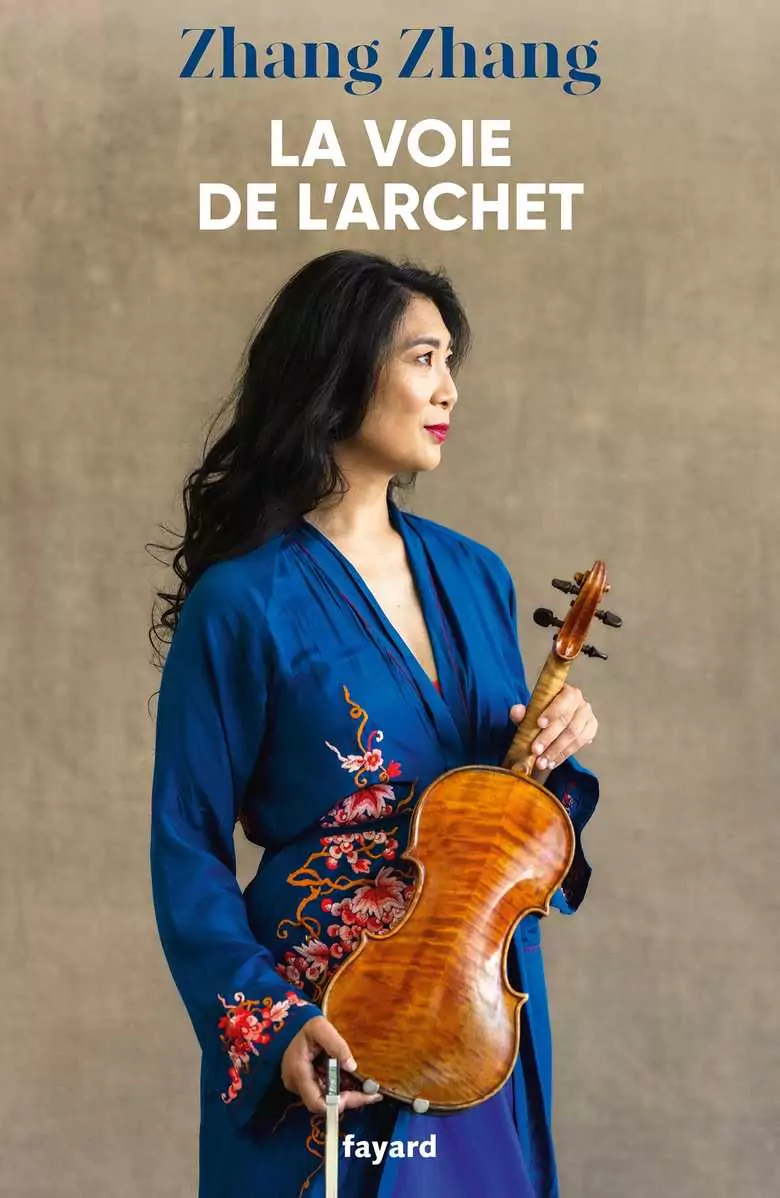
photo credit: MarcoStrullu
Monaco Life is produced by real multi-media journalists writing original content. See more in our free newsletter, follow our Podcasts on Spotify, and check us out on Threads, Facebook, Instagram, LinkedIn and Tik Tok.
Main photo: 34th International Silk Roads Cultural Expo, Dunhuang, China, Aug 2019, photo credit: Marco Strullu
